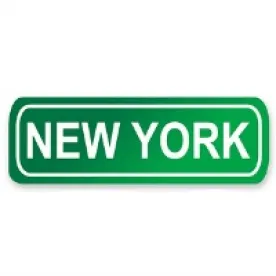As states across the country begin to ease workplace restrictions responding to COVID-19, New York will require employers to take steps, almost immediately, to avert another pandemic. The New York legislature recently enacted the Health and Essential Rights Act (the “HERO Act”), which requires all private New York state employers – regardless of industry or size – to comply with broad safety standards designed to reduce the spread of not just COVID-19 but all airborne infectious diseases. In addition, the HERO Act requires all employers with at least 10 employees to permit the creation of joint employer-employee workplace safety committees. So: What are the specifics and the applicable deadlines?
June 4, 2021
By June 4, 2021, private employers will be required to adopt a plan tailored to industry-specific hazards and work sites that addresses, among other topics, health screenings, face coverings, hygiene, PPE, sanitation and disinfection of workspaces, social distancing, engineering controls such as proper airflow, exhaust ventilation, or other special design requirements. Employers may choose to adopt a model plan provided by the state Departments of Labor and Health, or create their own plan in compliance with state standards tailored to industry-specific hazards and work sites. Employers with unionized workforces must work with the collective bargaining representative, if any, or with meaningful employee participation as to all aspects of an employer-developed plan.
November 1, 2021
By November 1, 2021, employers with at least 10 employees must permit their employees to establish and administer “joint labor-management workplace safety committee[s]” composed of employee and employer designees. However, these committees must be composed of at least two-thirds non-supervisory employees, who also must be selected by non-supervisory employees. Committee members will be charged with raising health and safety concerns to their employer, reviewing workplace policies, participating in site visits by government agencies responsible for enforcing health and safety standards, and creating a line of open communication around health and safety issues in the workplace. Whether employers will be required to participate in the formation of those committees – or simply permit them – remains to be seen.
Conclusion
The HERO Act contains fines and penalties for non-compliance, as well as anti-discrimination and anti-retaliation provisions. It also requires employers to provide notice of their safety plan to existing employees and new hires. June 4, 2021, will be here before we know it, and it does not leave the DOL and DOH much time to develop a model plan, nor employers much time to adopt and comply with such a plan. We anticipate that additional amendments to the Act will be made to provide more specific guidance as to final adoption and compliance deadlines. As of this writing, however, no amendments have yet been announced. We, therefore, encourage employers to start thinking about the health and safety processes in effect in your workspace and any lingering gaps that you may need to close.





 />i
/>i

